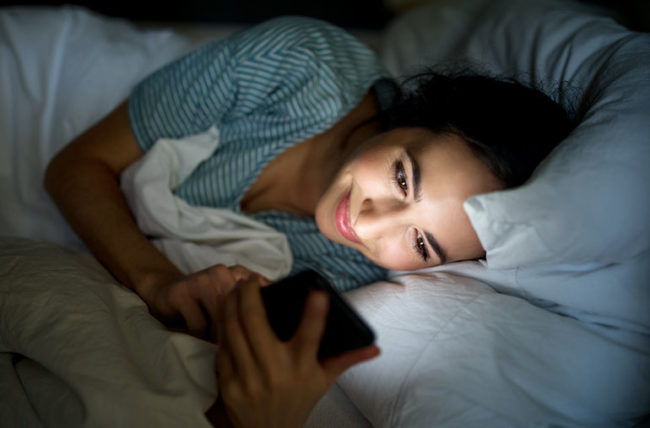According to a recent study by the University of California, San Francisco using your smartphone at night could be the reason you experience insomnia or poor sleep quality. Researchers have established that blue light coming from the smartphone screen leads to issues with the body entering a sleeping cycle during bedtime.
Use of smartphone at night can cause sleep deficiency
The researchers published the study in PLOS One in November. The study indicated that blue spectrum light such as the one emitted by smartphones suppresses melatonin which is the hormone responsible for sleep. As a result, one experiences difficulties in initiating sleep, reduced drowsiness, and non-restorative sleep.
The researchers evaluated 653 subjects, measuring how many hours they used a smartphone over a month and the link to their sleep patterns. The scientists found out that the average time for 30 days that one used a smartphone was 38.4 hours which is around 2.7 minutes every hour. They then cross-referenced this data with a sleep analysis. The study considered medical information, the subject’s sleep patterns, and self-reported night-time smartphone use. Researchers concluded that the more one used a smartphone the shorter they are likely to sleep.
The study indicates that a longer median screen time was correlated with sleep deficiency and short sleep times. Equally prolonged use of smartphones during bedtime resulted in sleeping durations associated with decreased sleep deficiency, poor sleep quality, and longer sleep onset latency. Despite the study not finding a causation link, it holds that the effective cause could be the reason and this need for more explorative studies.
Blue lights suppress melatonin production
The authors indicate that smartphone screen exposure is related to worse sleep. Melatonin production in the body is triggered by light and therefore more light means one will produce little melatonin. As a result, the body will stay awake at night because the blue light from the phone screen suppresses melatonin production thus deceiving the body to think it is daytime and should stay awake. It is important to note that sleep deprivation has been associated with the risk of obesity, depression, diabetes, and heart disease.


